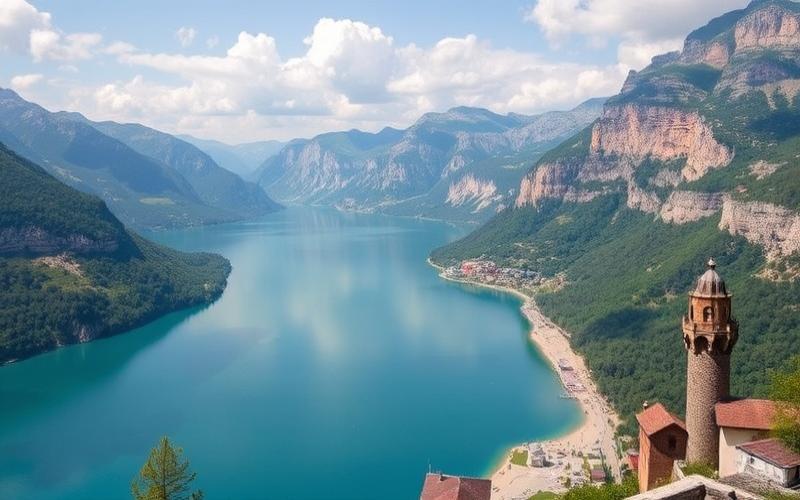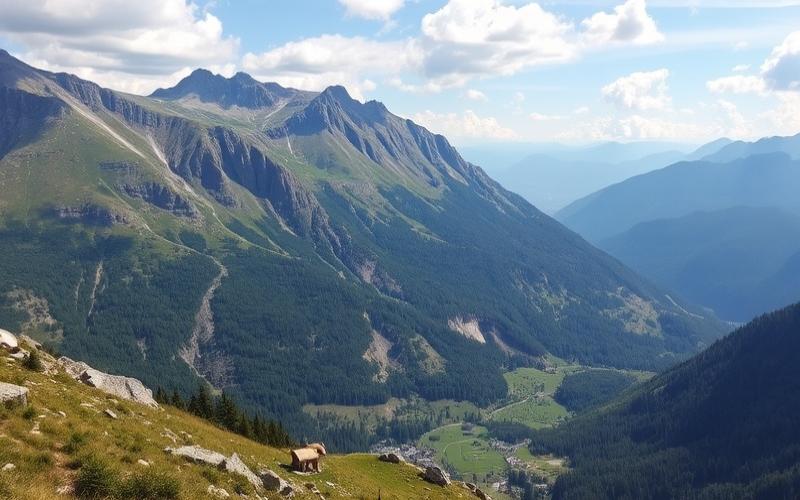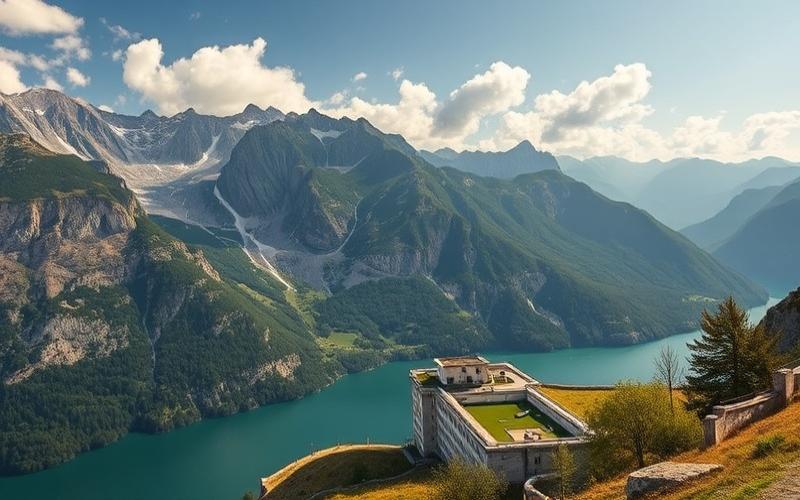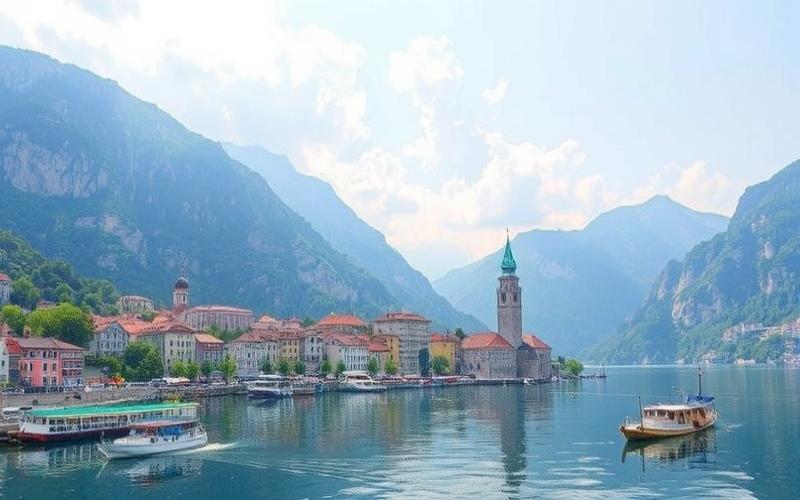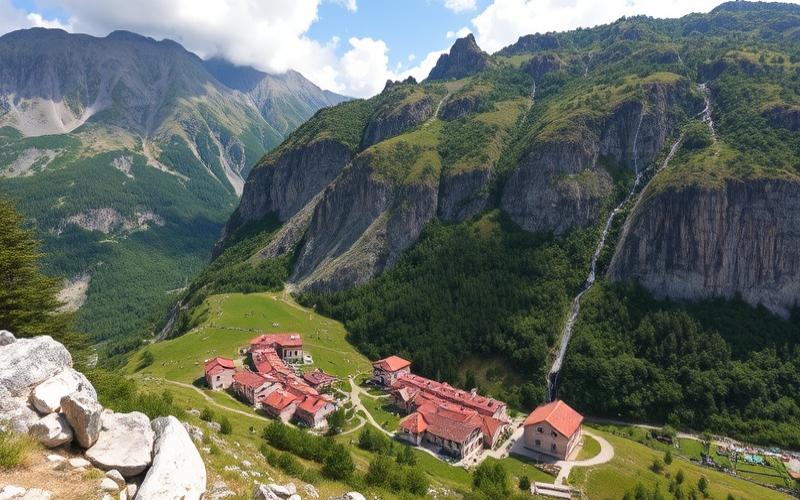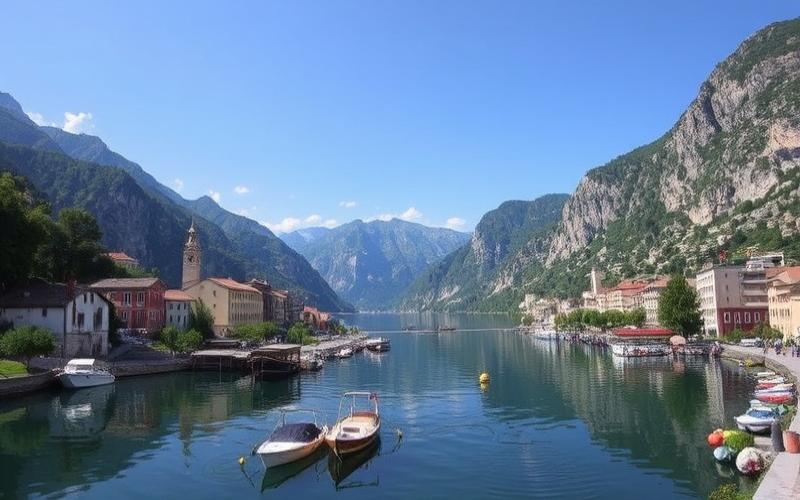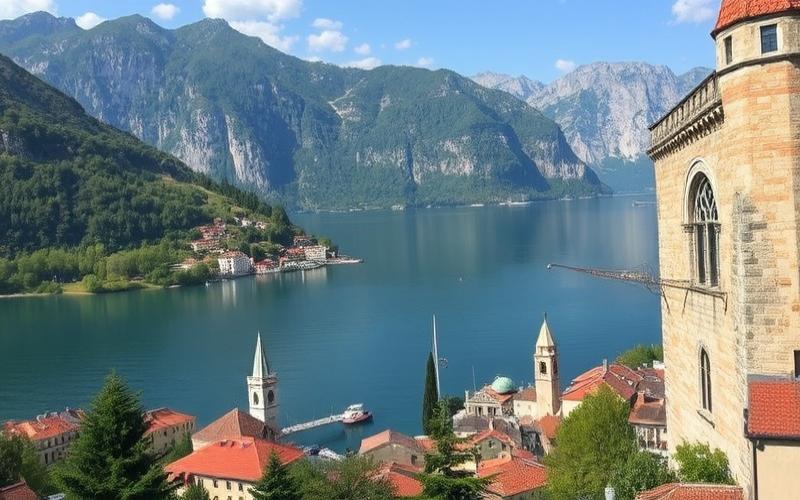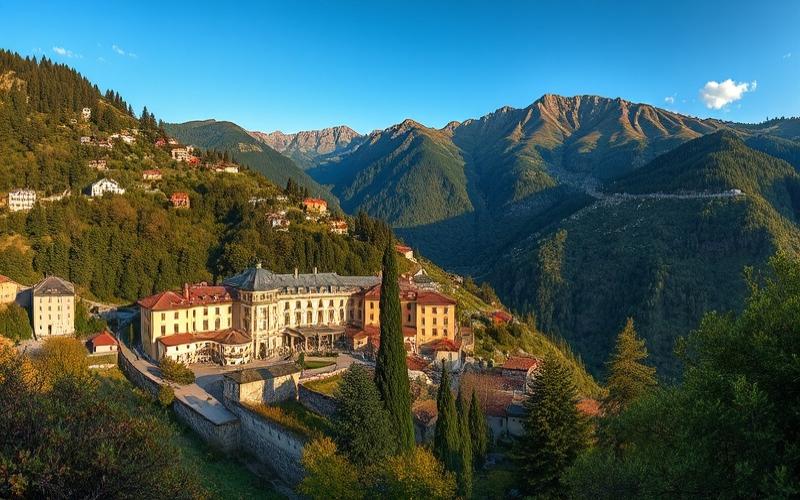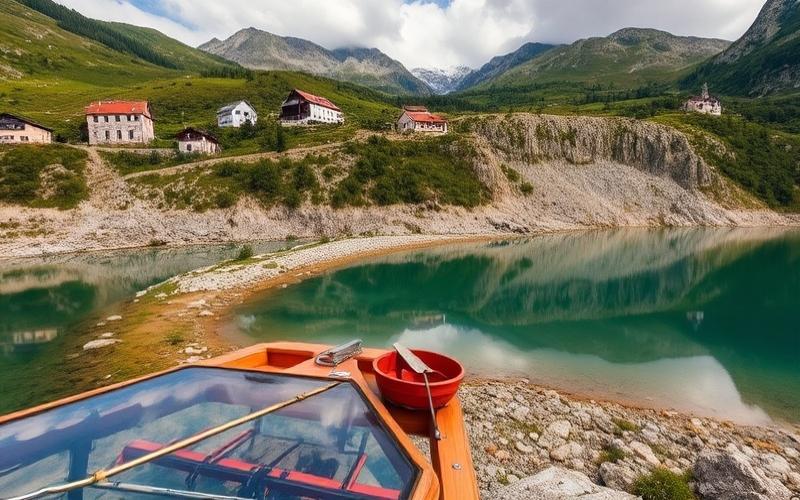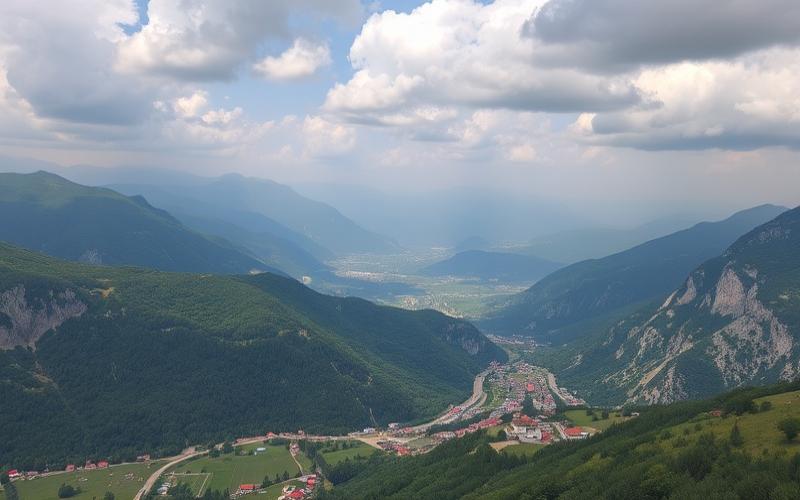
 Published on and written by Cyril Jarnias
Published on and written by Cyril Jarnias
Purchasing agricultural land in Montenegro represents a tempting opportunity for investors seeking to establish themselves in one of the most picturesque Balkan countries. With its stunning landscapes and favorable climate for agriculture, Montenegro is attracting an increasing number of foreign buyers eager to exploit its vast natural resources.
However, the complexity of local land laws, influenced by a rich and diverse historical past, requires thorough understanding to secure a sound investment.
This legal guide will provide you with all essential information, from the legal framework to administrative procedures, to navigate the acquisition process smoothly and ensure the success of your agricultural project.
Overview of the Legal Framework for Purchasing Agricultural Land in Montenegro
Overview of Key Legislation Governing Agricultural Land Purchase in Montenegro
Montenegrin laws governing agricultural land purchases primarily rely on provisions related to property ownership and agriculture. Several texts define the rights, obligations, and restrictions based on the buyer’s status (national or foreign) as well as the nature and location of the properties in question.
Requirements for Buyers
- Montenegrin nationals can freely acquire agricultural land, subject to compliance with regulatory uses.
- Foreign nationals are subject to several restrictions:
- Generally, a foreigner can only directly purchase agricultural land by creating a company registered in Montenegro.
- Acquisition by a foreign individual is restricted in certain areas: immediate proximity to borders (less than 1 km), islands, protected cultural monuments, or lands considered strategic for national security.
- For any purchase, it is mandatory to demonstrate that the land will be used exclusively for agricultural purposes. A business plan or agricultural operation project may be required.
Rights and Obligations of Owners
- The owner has the right to use the land according to its declared purpose (agriculture).
- Non-compliant use may lead to administrative sanctions or even revocation of property rights.
- Rights are transferable; however, any transfer must be conducted before a certified notary with possible involvement of a sworn translator for transactions involving a foreigner.
Administrative Procedure to Finalize the Purchase
Simplified list:
- Preliminary verification of the land’s legal status with the local cadastre.
- Drafting and signing of a preliminary then final contract with a certified notary (possible presence of a sworn translator).
- Filing and official registration with the competent real estate registry (average timeframe: 2-3 months).
- Possible payment of property transfer taxes unless exempted by law for certain intra-family transfers.
Summary Table
| Step | Detail |
| Cadastral Verification | Legal status/designation |
| Notarization | Signing final contract |
| Registration | Municipal land registry |
| Business Plan | Mandatory if agricultural use by a foreigner |
Role of Local Authorities
Municipal authorities play a central role:
- Preliminary validation of compliance with agricultural designation
- Administrative support during cadastral verification
- Post-acquisition monitoring regarding actual compliance with declared use
Specific Requirements Related to Agricultural Purpose
Key points:
- Effective obligation of use: must prove that the land will be used according to its declared purpose in the plan presented at purchase
- Conversion to another designation subject to express authorization
- Any non-agricultural activity prohibited without specific administrative procedure
Key Takeaway
Direct purchase by a foreigner is only permitted through a local company, mandatorily accompanied by actual agricultural use supported by justificatory documents; any regulatory deviation exposes to sanctions provided by current laws.
This legal framework aims both to protect national interests and ensure that lands remain primarily dedicated to productive agricultural activities.
Good to Know:
In Montenegro, the purchase of agricultural land is governed by legislations such as the Law on Property and the Law on Agriculture, which specify conditions for buyers, including restrictions for non-resident foreigners, who often need special authorization to buy agricultural land. Owners have specific rights and obligations, including proper land maintenance and crop declaration. Administrative steps include registration with local authorities, like the Agency for Development and Cadastre Registration, and obtaining an extract from the land registry. Local authorities play a key role, notably in verifying the intended land use compatibility with the local urban plan. Note, some plots may be specifically dedicated to certain agricultural productions, requiring prior agreement for different use.
Understanding Rural Zoning and Its Implications in Montenegro
Rural zoning in Montenegro is governed by the Law on Spatial Planning and Construction, which defines rules related to land use, construction, and development in rural areas. This system aims to promote sustainable development, protect the environment, and ensure orderly territorial growth.
Types of Rural Zones
| Zone Type | Description | Concrete Examples |
|---|---|---|
| Agricultural Zone | Primarily intended for agricultural activities, livestock, crops. | Fertile valleys around Nikšić |
| Environmental Protection Zone | Protected natural areas to preserve biodiversity or natural resources. | Lake Skadar National Park |
| Mixed Zone | Combination of agricultural, residential, or tourist uses under specific conditions. | Rural outskirts near Herceg Novi |
Restrictions and Regulations by Zoning Type
- Agricultural Zones:
- Construction limited to buildings directly related to agricultural operation (sheds, barns).
- Generally strict prohibition on dwellings not linked to agricultural activity.
- Conversion to non-agricultural use requires a complex administrative procedure.
- Environmental Protection Zones:
- Prohibition or strong restriction on any new construction.
- Agricultural activities permitted only if they comply with strict ecological standards.
- Projects subject to mandatory environmental impact assessment.
- Mixed Zones:
- Limited possibility to build residences or tourist infrastructure subject to prior authorization.
- Necessary compliance with locally set quotas for each use.
Administrative Procedure
- Any request related to a project (purchase/sale/construction) must be submitted to the competent local authorities: municipality, local urban planning council, or communal technical service as applicable.
- The file often includes a detailed project plan and an impact study when required for sensitive areas.
- Public consultation possible before permit issuance; publication in local official gazettes so the community can express opinions.
Impact on Purchase and Use of Agricultural Land
- Buyers must imperatively verify the exact zoning type before acquisition to avoid any subsequent administrative blockage regarding desired construction or change of use.
- Some plots can only be used for traditional agriculture without legal possibility for future conversion to secondary residence or structured tourist exploitation.
List of Essential Criteria When Investing:
- Verification of official certificate indicating zoning (“urbanistic and technical requirements”)
- Thorough analysis of restrictions attached to the land
- Anticipation of future needs (possible extension, sale)
- Systematic consultation with a specialized local lawyer
Zoning Influence on Land Value
The table below illustrates how different zoning types typically influence price per square meter:
| Zoning | Estimated Value |
|---|---|
| Pure Agricultural | Low |
| Mixed | Medium |
| Environmental Protection | Variable but often low |
Land located in a strictly agricultural zone will be less expensive but also much more constrained in its development possibilities than mixed-zone land where certain developments are feasible with authorization.
Key Takeaway:
The actual value always depends as much on the legal potential granted by the local plan as on its intrinsic geographical location; therefore, it is essential for any potential investor in rural Montenegro to master this regulatory framework perfectly before any land transaction.
Good to Know:
In Montenegro, rural zoning is a crucial mechanism governing land use, directly impacting the purchase and use of agricultural land. There are mainly three types of rural zones: agricultural zones, where agricultural exploitation is the priority; environmental protection zones that impose strict restrictions to preserve ecosystems; and mixed zones that allow a combination of agricultural and non-agricultural activities. For example, in environmental protection zones, construction may be nearly prohibited, while in agricultural zones, certain infrastructure necessary for operation, like silos or sheds, may be authorized under conditions. Zoning is administered by local authorities, thus influencing the regulation and development of each region, which requires potential buyers to be well-informed before investing. Zoning can also influence land value, often making it higher in mixed zones where diverse activities are possible. Investors should therefore carefully examine the zoning type, associated restrictions, and how this may affect the profitability and development of their property.
Managing Risks Associated with Non-Buildable Land
In Montenegro, regulations on the use of non-buildable land primarily rely on the Law on Spatial Planning and Construction. Land is categorized as non-buildable based on several precise criteria:
- The general urban plan (General Regulation Plan) or local plan defines zones where any new construction is prohibited. These plans specify permitted uses and set strict rules for each zone.
- Considered non-buildable are:
- Public use lands (state, municipal property)
- Agricultural land or forests over 5,000 m²
- Cultural monuments
- Land border zones
- Islands and other lands prohibited by the government for national security or public interest reasons
- A formal construction ban can be declared in a specific decision during the development of an urban plan. This prohibition applies until the deadline set by said decision expires.
| Criterion | Detail |
|---|---|
| Usage defined by plan | Agricultural zone, forest, protected monument… |
| Ownership | Governmental/municipal |
| Minimum surface | >5,000 m² for agricultural land/forests |
| Location | Border zones, islands |
| Administrative decision | Explicit prohibition in a plan |
Administrative Steps to Verify Classification
Before any purchase or project:
- Obtain an updated cadastral extract from the local land service.
- Consult the urban planning plan applicable to the targeted parcel.
- Request from the competent service (municipality/ministry) a written certificate confirming whether the land is located in a buildable or non-buildable zone.
In case of doubt:
- Engage a certified notary who will also verify legal restrictions during the transaction.
- Consult a lawyer specialized in Montenegrin property law.
Reclassification Possibilities
Reclassification of non-buildable land remains possible but complex:
- It often requires prior modification of the urban plan through an official procedure involving public inquiry and ministerial or municipal validation.
- For certain special cases (a posteriori legalization), it may be possible, under strict conditions and payment of specific taxes, to obtain partial regularization if acquired rights are demonstrated.
Synthetic list of possible steps:
- Official submission of a request to competent authorities with complete justificatory file
- Possible payment of fees related to communal equipment or urbanization
- Participation in public inquiries when necessary
Financial and Legal Risks
Major risks include:
- Total invalidity of permit/prohibited construction: legal impossibility to build
- Severe administrative sanctions: substantial fines or even forced demolition
- Non-insurability: frequent refusal by companies to insure illegal/non-compliant properties
- Increased risks if purchase without due diligence: major financial loss
Practical Tips to Minimize These Risks
- Always perform exhaustive due diligence before any financial commitment:
- Complete cadastral verification
- Detailed analysis of urban zoning
- Systematically use a lawyer specialized in Montenegrin real estate/property law to secure any transaction
- Require all official certificates proving the exact legal status of the land before signing
- Never rely solely on verbal statements; prioritize official documents stamped/initialed by local authorities
Important Box
Caution requires that each step be legally validated to avoid costly sanctions, prolonged administrative blockages, or even expropriation without real compensation.
Following these recommendations strongly limits financial/legal complications related to non-buildable land in Montenegro.
Good to Know:
In Montenegro, non-buildable lands are governed by strict regulations, categorized mainly based on their location, soil quality, and environmental impact. To verify if a land is classified as non-buildable, it is crucial to go to the local municipality to consult the urban plan and obtain zoning certificates. Reclassification of such land, although possible, remains rare and requires a complex and prolonged administrative process. Financial risks include purchasing lands that cannot be exploited as desired, while legal risks extend to severe sanctions for any unauthorized construction. It is also difficult to cover non-buildable lands with ordinary insurance policies. To minimize these risks, it is recommended to consult experts in Montenegrin property law and conduct thorough due diligence before purchase, ensuring especially the validity and accuracy of obtained land information.
Disclaimer: The information provided on this website is for informational purposes only and does not constitute financial, legal, or professional advice. We encourage you to consult qualified experts before making any investment, real estate, or expatriation decisions. Although we strive to maintain up-to-date and accurate information, we do not guarantee the completeness, accuracy, or timeliness of the proposed content. As investment and expatriation involve risks, we disclaim any liability for potential losses or damages arising from the use of this site. Your use of this site confirms your acceptance of these terms and your understanding of the associated risks.




